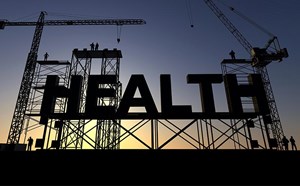
Update from the Advocacy Workgroup
We have put forth a resolution for this year’s Council that focuses on the important role of social workers in the ED. As the driver of this resolution, Dr. Livia Santiago-Rosado explains the impetus for it:
Over the last decade, we have seen changes in the way we deliver emergency care, particularly in regards to our treated and released population. Many of us remember the mantra "treat 'em and street 'em" but over time it became clear that simply "streeting" people was not only potentially wrought with patient safety concerns, but also financially untenable as it contributed to the revolving door associated with patients with poor social determinants.
In this context the role of social workers and care managers became more and more important in order to manage our patients and expand their access to outpatient care and appropriate social services that could improve their health and increase their engagement.
Having practiced within a health system that supported that evolution, it is easy to take for granted the expanded role and presence of social work. This became clear when I moved to an institution that had not yet addressed social determinants among emergency department (ED) patients in a meaningful way, and as such did not have such resources allocated to the ED beyond the clinicians and clerical staff. Since the clinical work is foremost (as it should be), the social aspects are frequently incompletely, if at all, addressed in such an environment. In the absence of social work and care management, we had large numbers of patients with frequent ED visits that could have been best served elsewhere, a lack of robust post-visit outpatient care plans or individualized access to follow up, and staff dissatisfaction related to that proverbial revolving door. Bringing these issues to hospital administration did not result in allocation of these resources, perhaps because we have not formally presented a united front in calling for these individuals to be involved in the care of many of our patients.
The hope is that this resolution will provide a way to educate hospitals and health systems who have yet to dedicate ongoing social and case management services to their EDs about their importance in promoting safety, flow and financial sustainability for the institution, and to actively promote the incorporation of these important roles within the ED care team.
We are also co-sponsoring a resolution on medical neutrality that is being presented by the International section. While our patients in the U.S. often face barriers related to their social determinants, at least in theory they cannot be denied healthcare due to political party or participation in anti-government protests. Sadly this is not the case everywhere, as vividly illustrated by the situation in Nicaragua last spring, where the government attempted to block the delivery of emergency care to anti-government protestors. Medics and physicians who followed their conscience and treated all patients faced loss of government jobs as well as threats to their safety.
With this situation in mind, the International section is urging ACEP to take a stand in favor of impartial delivery of medical care throughout the world.
Aislinn Black, DO, FACEP and Livia Santiago-Rosado, MD, FACEP




